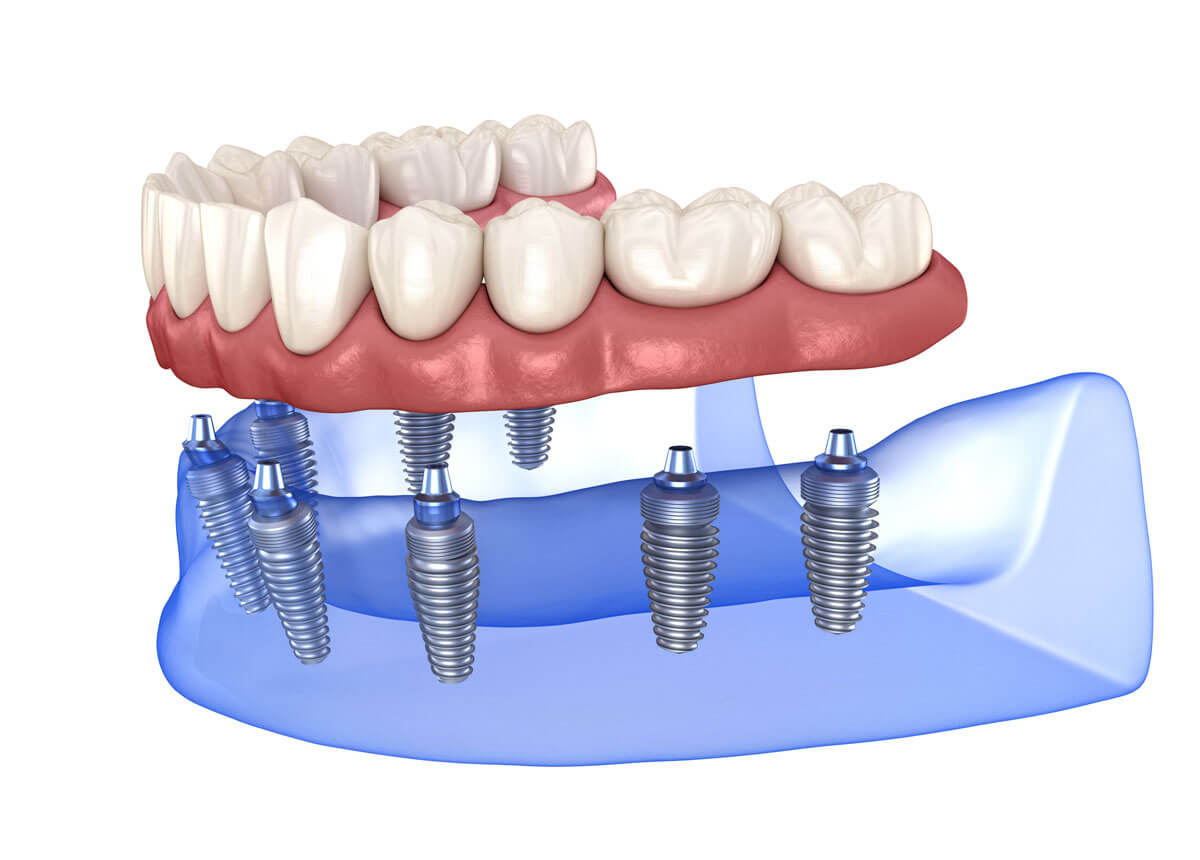9 Simple Techniques For Dental Sense
9 Simple Techniques For Dental Sense
Blog Article
Getting My Dental Sense To Work
Table of ContentsThe Main Principles Of Dental Sense Some Known Questions About Dental Sense.Dental Sense for DummiesThe 6-Minute Rule for Dental Sense
are clinical gadgets surgically dental implanted right into the jaw to bring back a person's capacity to eat or their appearance. They provide assistance for fabricated (phony) teeth, such as crowns, bridges, or dentures. When a tooth is lost due to injury or condition, a person can experience issues such as rapid bone loss, malfunctioning speech, or adjustments to chewing patterns that lead to discomfort.Oral implant systems consist of a dental implant body and oral implant abutment and may also consist of a joint addiction screw. Dental implants. The oral implant body is operatively put in the jawbone instead of the tooth's origin. The dental implant joint is typically affixed to the implant body by the joint addiction screw and prolongs via periodontals right into the mouth to support the affixed fabricated teeth
(https://hubpages.com/@dentalsense1)Framework of The Oral Implant System choosing dental implants, talk with your oral provider concerning the possible benefits and threats, and whether you are a prospect for the procedure. Things to think about: Your overall wellness is a crucial aspect in identifying whether you are a good prospect for dental implants, for how long it will take to heal, and how much time the implant may remain in place.
Smoking may impact the healing procedure and decrease the long-lasting success of the dental implant. The healing process for the implant body may take a number of months or longer, throughout which time you generally have a short-term abutment instead of the tooth. the dental implant procedure: Thoroughly follow the dental hygiene directions offered to you by your dental company.
A Biased View of Dental Sense
Implant failing can lead to the demand for one more surgery to repair or change the dental implant system. Restores the capability to eat Recovers cosmetic appearance Helps maintain the jawbone from shrinking as a result of bone loss Protects the wellness of the bordering bone and gum tissues Assists maintain adjacent (neighboring) teeth secure Enhances top quality of life Damages to bordering all-natural teeth throughout dental implant positioning Injury to the surrounding cells throughout surgery, such as sinus opening Injury throughout surgery (as an example, crack of bordering jawbone) Inadequate function, such as feeling like the teeth do not bite together generally A sensation that the tooth hangs or turning in position arising from a joint screw loosening up Implant body failure (looseness of the dental implant body) as a result of systemic infection, which might be extra likely in clients with unrestrained diabetics issues as a result of neighborhood infection in bone and gum tissues supporting the dental implant body because of postponed healing, which may be most likely in patients that smoke Trouble cleaning up the gum tissues around the implant, causing inadequate dental hygiene Neglected gum condition Post-surgical pins and needles as a result of nerve impingement or damages Always inform healthcare providers and imaging specialists that you have dental implants prior to any type of magnetic resonance imaging (MRI) or x-ray procedures.
FDA is not knowledgeable about any kind of damaging occasions reported for MRI or x-ray procedures with oral implants. Dental implants systems are typically made from materials that comply with international agreement standards of the International Organization for Standardization (ISO) or ASTM International. These standards have information of what makes a safe product.

An oral implant is a structure that replaces a missing out on tooth. With address screw-like gadgets, the doctor inserts a dental implant right into the jawbone, and it acts as a support for an artificial tooth, called a crown.
Dental Sense Things To Know Before You Buy
Some individuals are not qualified for oral implant surgical treatment. It is for oral surgeons to operate individuals with: intense illnessuncontrollable metabolic diseasebone or soft tissue condition or infectionIf these concerns are settled, a person can have the surgical treatment. In, oral doctors avoid operating individuals with: If individuals with any of the above undergo dental implant surgical treatment, there is a higher threat of the implant falling short.

Dental dental implant surgical procedure is a customized procedure. It's not the same for everybody. But the following provides a basic overview of what you can expect your dentist, oral doctor, periodontist or prosthodontist to do: Put the dental implant surgically. Give you time to heal. Affix the post and last crown, bridge or denture.
Next, your specialist will thoroughly place the dental implant right into your jaw. If your implant is near the front of your mouth, your dental practitioner will make a temporary tooth for you to wear up until you heal.
What Does Dental Sense Mean?
During the recovery phase, your jawbone ought to fuse to the dental implant. This procedure can take anywhere from 3 to nine months.
As soon as your implant heals, your dentist can connect the joint (tiny connector message) and your last restoration (crown, bridge or denture). This normally takes about one hour to finish and might need a 2nd minor surgical procedure. You shouldn't feel any kind of discomfort throughout your dental implant procedure due to the fact that your company will make use of medication to numb your periodontals.
Report this page